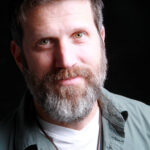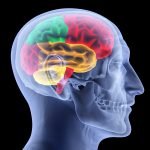Managing Mind-Body Medicine in a World of Obstacles
Tolle Totum
Moshe Daniel Block, ND, HMC
In March 2011, I published an NDNR article titled “Establishing the Mind-Body Connection in the Treatment of Auto-Immune Illness,”1 discussing my experience of how I helped myself and others heal from myasthenia gravis. Since that time, it has become very clear that to have success in a case, it is vitally important to properly manage it. Case management is as important as selecting the right remedy and helping the patient recognize how the body is reflecting the mind. As a student and during the early years of my practice, I had very idealistic hopes that I would select the right homeopathic remedy from the start, and that would be it, end of story. Or, I mused that in the first appointment, I would help the patient recognize a connection between the choices that he or she makes and their disease, and the patient would then be totally free from suffering from that point on. Whereas this can and does happen sometimes (and we rejoice about it), by no means does it occur all the time. In the portion of cases where phenomenal results do not occur right from the start, proper case management can make or break the case.
I have been quite surprised to see what case management actually entails in practice. Sure, there are those familiar elements of case management such as guiding patients to properly take their homeopathic remedy, managing their diets, and offering exercises to help them be truer to themselves. But the real battle is the inherent struggle between the different models of medicine. Although there are many models for healing, I write in my book The Revolution of Naturopathic Medicine2 about the 3 main models that NDs practice: the allopathic model (which is the most widely accepted and embedded in our society), the “systems” model, and the holistic model. Having a thorough understanding of these models, including their shortcomings, falsehoods, and strengths, is central to case management because our patients do not live on an island with us and are often consulting many other healthcare professionals.
Allopathic Model of Medicine
The allopathic model, which is a term derived from homeopathy, means “the other” method of treating disease. This model has come to be widely accepted in our society and is based on the assumption that the body functions like a machine (mechanistic model). When a part malfunctions, you have to fix that part with a drug, a supplement, or corrective surgery. The overwhelming majority of MDs practice this model of medicine and, to my surprise, I have observed a large percentage of NDs who do so as well. Instead of using toxic, harmful pharmaceutical drugs, NDs will use gentler supplements and natural substances to treat the symptoms of disease in this allopathic model of medicine (eg, using Saint John’s wort for depression instead of paroxetine hydrochloride or fluoxetine hydrochloride). It is a step up from the dangerous pharmaceutical drugs, but it is still within a model of medicine that does not work in harmony with the healing power of nature.
The allopathic model also does not address the fundamental cause of illness, treat each person as an individual, treat the whole person, or really apply any of the other root philosophies of naturopathic medicine. So, practicing with that model to help heal chronic illness is greatly truncating the full spectrum of the medicine, like just seeing the chemical constituents of a plant instead of seeing its full majesty. But it is an easy model to teach and to grasp. You can train anyone how to do it, provided he or she is good with the left brain. Even people at the health food store can do it if they are good with Google and matching conditions with the indicated herbs and supplements. Eventually, computers may be the MDs of the future, set up to receive an inputted list of symptoms, make a diagnosis, and suggest the optimal drug or supplement. The allopathic model is quick-fix, immediate-results-oriented, despite the fact that down the road the inherent disharmony of the patient often gets worse as a result of only addressing the symptoms and not the fundamental cause of illness. And people want the quick fix. This is not to say that there is no room for the allopathic approach. There is and will always be a necessity in severe trauma and in settings where the holistic model is inapplicable.
Systems Model of Medicine
The next model, the systems model, is a more evolved form of the allopathic model, with a still weighty gravitational pull toward the more physical and mechanistic side of reality. This model is based on the idea that a healthy person must have healthy systems; if a system is not functioning optimally, then the person gets sick. For example, this translates as a mobile, balanced spine for chiropractors, or a healthy gut for the leaky gut syndrome practitioners. The corrective solutions often involve putting the system back into properly working order with diet, supplements, or manipulations. Like the allopathic model, this does not require the application of the basic principles of naturopathic medicine philosophy, which include treating the whole, individual person and addressing the fundamental cause of disease. A chiropractor, for example, believes that the real, fundamental cause of illness lies in an unbalanced or subluxated spine, and an ND may believe that a leaky gut is the underlying cause of fibromyalgia and chronic fatigue syndrome. I have found this not to be true because of 2 important factors. The first important factor is the mind-body connection and the fact that the body is a reflection of the mind.3-6 So, by addressing illness strictly on a physical basis with diet, supplementation, or manipulations, the body’s reflection of the unhealthy thinking in the mind is not established. Temporary improvement can occur with both the systems approach and the allopathic approach, but when these treatments are discontinued, there will be a return of the condition in some form at some point in the future because the deepest underlying cause was not addressed and thus persists. The underlying cause of disease always expresses itself in a person. It is the rather large pea under the mattress that cannot be suppressed or ignored for long. This is a good thing, and it is the way of nature, in order to bring about evolution of the person.
The second important factor that makes the systems approach not the most effective of the models of medicine to heal chronic illness is that it does not work in harmony with the philosophy of naturopathic medicine. As a medical system with roots clearly established in our philosophy, naturopathic medicine works best when it is aligned with those roots. And that is the secret and beautiful nature of the third, holistic model of medicine.
Holistic Model of Medicine
Like the very model of holism that naturopathic medicine is meant to be, the medicine itself works best when all the points of philosophy act together as one united whole. That is, the fundamental cause is revealed and gently addressed (no harm) by helping the patient recognize (physician as teacher) how the body is a reflection of the mind (whole person) and that his or her problem has crystallized in a fashion that is absolutely unique to a specific story, wound, and experience in life (each as an individual).
Through my years of practice, I have continued to develop and evolve a process that applies the holistic model of medicine. I find it to be the most effective method in cases of autoimmune and other forms of chronic disease. It is through this process that the greatest, simplest, most lasting, nontoxic, empowering, least supplemented healing takes place. It is also in this model that cases become amazing to behold. It is a true wonder to facilitate patients’ recognition of the underlying cause of their illness, and for them to see how the thread of that underlying cause runs through their entire life and has affected their health. And it is greatly rewarding to help them apply that recognition for lasting healing. I often work with patients who have gone to see other NDs. I am quite surprised at how superficial their approach has sometimes been and how little they have actually helped their patients understand the true cause of their illness.
The application of holistic naturopathic medicine has its challenges and is not without limitations. It can be slow but it is steady, provided the patient stays the course, and that is where the greatest obstacle to cure lies. The greatest barrier to holistic healing lies in the ever-present temptation to pop the pill or the supplement of the allopathic model or systems model. This is where the battle comes in. We have been conditioned to believe that the physician knows best. Physicians promote this idea by believing themselves to be experts of medicine. And yet, ironically, the healing power of nature happens only within the patients, themselves, and does not come from the physician. The greatest release of the healing power occurs when persons recognize how the choices they have made and the limited, false belief systems they have upheld have influenced their mental, emotional, and physical health. This beautiful, delicate, and tenuous path is easily distracted by the allopathic approach and systems approach. Like an alcoholic sitting on the bandwagon, one little taste of the oh-so-appealing liqueur of “fix me, doctor,” and the subtle “path less traveled” is lost. I have seen many times in my practice when patients will have a big breakthrough with me in understanding what is at the root of their condition, yet come back for a follow-up visit and reveal that they have spent no time or effort focusing on making changes. A little investigation exposes the fact that they had been to another practitioner and their own empowering healing was swept aside for a quick fix.
Cases of Mind-Body Medicine
I have noticed a trend in practice wherein people who doubt themselves, feel as though they are not good enough, or think there is something wrong with them, tend to doubt any inherent ability to heal themselves and work holistically. These are issues I have found in many people suffering from autoimmune conditions. Their solution, then, is to rely on the drugs of the MD or the supplements of the ND, all “outside” solutions, as a reflection of their lack of trust in themselves. They subsequently project their own sense of doubt and inability onto the healing power of nature that resides in themselves.
A middle-aged man with myasthenia gravis had this very issue. After exploration with holistic counseling, we discovered that his myasthenia gravis flareups occurred when he had made decisions to leave the closeness of his family. His subconscious fear of being on his own manifested as a strong reaction of weakness so that he physically could not leave. The underlying feeling was that he relied on them and could not do life on his own. The medicine that he gravitated toward, therefore, reflected the feeling that he could not live on his own. He felt that he needed the support of the allopathic drugs and the naturopathic supplements. Therefore, the big challenge in managing his case was to get him to recognize that his need for the drugs and supplements mirrored his underlying need for support from his family.
Another patient with a chronic, recurring rash would go through bouts of having extremely low energy, isolating herself, and feeling miserable. Upon exploration of what the rash represented, she felt the same way about it that she did about herself—the mind-body connection. She hated the rash and felt that she needed help to “get rid of it,” something she also felt about how her family had been with her earlier in her life. She was taking multiple supplements to fix her problem, none of which were helping, but she felt that she needed them because she had come to believe that she was incapable of doing anything right on her own. This sort of approach to health gets one into a vicious cycle. By relying on the outside “help” of the supplements, she reinforced the idea that she could not do it on her own, which triggered her feelings of self-loathing that brought out a rash that she loathed and needed to get rid of. I helped her recognize this pattern. She stopped all the supplements, focused on the root cause, and her rash improved.
I have observed another aspect of this vicious cycle that occurs with anyone taking pharmaceutical drugs and, to a lesser degree, supplements and herbal medicine. A patient is on a drug for a health condition. The drug is suppressing their condition, while the underlying disturbance in their vital force worsens such that when they come off the drug there is a rebound effect and the symptoms resurface. Then, observing this, the allopathic conclusion is that the person needs to resume the drug. I see this in my patients with myasthenia gravis, especially where it concerns drugs such as prednisone and pyridostigmine bromide. Therefore, in order to bring forth a lasting healing, we must help our patients understand these dynamics that are at play in working with the holistic model.
When I work with people having illness, I see the soul that they are operating in their life and how their soul is being blocked or inhibited from being expressed in harmony with their true nature. The allopathic and systems approaches that they have frequented have done nothing to influence them at the level of the soul, which is the deepest dimension of the “whole” that we acknowledge in the philosophy of our medicine. In my experience, these models are not what a person truly needs from an evolutionary perspective of the soul. The West, and in particular North America, is often criticized for being a society based largely on outward appearances. What sort of medicine would such a society gravitate toward? It would lean toward a medicine that keeps the body feeling healthy and looking good, but not one that helps someone grow deeply as a person. What sort of a society do we have when we aspire to create the outward appearance of good looks and health, but inwardly the corruption of mind and emotion live on in a false outward appearance of health? What do we take with us to the next world when our lives come to an end? These questions bring into question an even greater level of holism, namely, the fact that our lives cannot be separated from our health. So, when illness manifests, how can we then just patch up the illness allopathically or repair the faulty systems without coming to a greater awareness of how our life, health, mind, and body are all one big whole and without working to make some change?7
The way I regard the results of the allopathic and systems methods at the level of the body is the same way I perceive someone who smiles only with the face, and not the heart or the eyes. It is almost a louder frown than if the person was not smiling at all because the outside is smiling much more than the inside. The discrepancy between the health of the body and the illness of the mind and emotions seems all that much larger. For people who live only for outward appearances, this may work for a time. Although our society strives toward keeping the proper appearance, are people really happy in their lives? Are they free and at peace within themselves? Can we say that our world operates at its greatest level of efficiency, is governed without corruption, and provides equally for all its people? Naturally, no. So, we can see that the allopathic and systems approaches, as the much more frequently used models of medicine, function to maintain a certain level of outward health, while actually perpetuating a deeper level of corruption. A world’s state of being is inseparably connected to the overall health of the people. And this is diametrically opposed to the operation and results of the holistic model.
This is the main issue in case management. While the holistic ND works in one direction, society at large works in exactly the opposite direction. It can be a very frustrating component of a truly holistic practice. It requires awareness, complete patience, and total persistence because patients will continue to turn to their physicians as a knee-jerk reaction whenever something is “wrong” with them or their loved ones. Allopathic medicine is the number 1 obstacle to cure in my practice. Isn’t that irony at its most perverse level?
I had the case of a man in his 60s with a severe form of myasthenia gravis. He was so weak that he could not climb up the one flight of stairs to my office and was not even able to hold his head erect. We had to have the first appointment in his car. A few months later, after weaning off his pharmaceutical drugs and following the prescription of a well-selected homeopathic remedy, he was drug-free and feeling fabulous. We both rejoiced. He told all of his friends and family. A few months following that, some of his symptoms began to creep up to a minor degree, and I had him repeat his remedy, which brought out a lung infection, something that had been suppressed with antibiotics many times in his past. Then, instead of thinking to consult with me, he went straight to the physician and was put back on antibiotics. All of his symptoms came back with a vengeance that took even longer than initially to correct. Eventually, we did get him back into good health, and there he remains.
Conclusion
Individuals may not want to deal with their mental-emotional issues because as a society we have not stressed enough the importance of doing so. They would rather do the most outlandish things than face that which lies just beneath the surface of their conscious minds. When symptoms arise, subconsciously they know that they are emerging from that which they do not want to face, and so they wish to be rid of the reminder, as soon as possible. This epitomizes the battle of the models of medicine. On the one hand, face one’s problems, grow as a person, and heal deeply and lastingly. On the other hand, ignore the underlying problem, kill the messenger symptoms, and kick the can of disease forward.
People are yearning to lead happier and healthier lives. They are seeking guidance to become better versions of themselves. The temptation will always be there to seek an allopathic approach or a systems approach in medicine. Pressure and influence will arise from the patients, their families, society, MDs, NDs, and other healthcare providers, as well as mostly from the insecure part of ourselves as practitioners that would also like to just give them an easy “this for that” allopathic solution. By patiently and persistently keeping our eye on the prize, we can properly manage our holistic cases in a world that is often diametrically opposed and help bring about the gentlest, most lasting, empowering, and most cost-effective healing.
 Moshe Daniel Block, ND, HMC is the author of The Revolution of Naturopathic Medicine: Remaining True to Our Philosophy, a book about the philosophy and practice of naturopathic medicine, and Holistic Counseling – Introducing the Vis Dialogue, a book about a breakthrough healing method uniting the worlds of Mind-Body Medicine & Psychology. He graduated from the Canadian College of Naturopathic Medicine (Toronto, Ontario) in 2000. Dr Block then went on to complete the Homeopathic Master Clinician course with Louis Klein, FSHom, in 2003. He specializes in autoimmune illness and myasthenia gravis, a disease he was personally diagnosed as having and from which he has healed himself. He teaches the very wisdom and knowledge that helped him heal himself and others in his Holistic Counseling course for NDs (holistic-counseling.ca). Some of the other projects Dr. Block has worked on can be found at his private practice website (myasthenia-gravis-cure.com), his books website (nddoctor.net), Holistic Counseling (http://www.holistic-counseling.ca) and his global website (david-house-productions.com).
Moshe Daniel Block, ND, HMC is the author of The Revolution of Naturopathic Medicine: Remaining True to Our Philosophy, a book about the philosophy and practice of naturopathic medicine, and Holistic Counseling – Introducing the Vis Dialogue, a book about a breakthrough healing method uniting the worlds of Mind-Body Medicine & Psychology. He graduated from the Canadian College of Naturopathic Medicine (Toronto, Ontario) in 2000. Dr Block then went on to complete the Homeopathic Master Clinician course with Louis Klein, FSHom, in 2003. He specializes in autoimmune illness and myasthenia gravis, a disease he was personally diagnosed as having and from which he has healed himself. He teaches the very wisdom and knowledge that helped him heal himself and others in his Holistic Counseling course for NDs (holistic-counseling.ca). Some of the other projects Dr. Block has worked on can be found at his private practice website (myasthenia-gravis-cure.com), his books website (nddoctor.net), Holistic Counseling (http://www.holistic-counseling.ca) and his global website (david-house-productions.com).
References
- Block MD. Establishing the mind-body connection in the treatment of auto-immune illness. NDNR. 2011. https://ndnr.com/web-articles/autoimmuneallergy-medicine/establishing-the-mind-body-connection-in-the-treatment-of-auto-immune-illness/. Accessed February 16, 2013.
- Block MD. The Revolution of Naturopathic Medicine: Remaining True to Our Philosophy. Montreal, ON: Collective Co-Op; 2003.
- Gilbert MD. Weaving medicine back together:
- mind-body medicine in the twenty-first century.
- J Altern Complement Med. 2003;9:563-570.
- Jacobs GD. The physiology of mind-body interactions: the stress response and the relaxation response.
- J Altern Complement Med. 2002;8:219.
- Sherman R, Hickner J. Academic physicians use placebos in clinical practice and believe in the
- mind-body connection. J Gen Intern Med. 2008;23:7-10.
- Astin JA, Shapiro SL, Eisenberg DM, Forys KL. Mind-body medicine: state of the science, implications for practice. J Am Board Fam Med. 2003;16:131-147.
- Mainguy B, Valenti Pickren M, Mehl-Madrona L. Relationships between level of spiritual transformation and medical outcome. Adv Mind Body Med. 2013;27:4-11.










